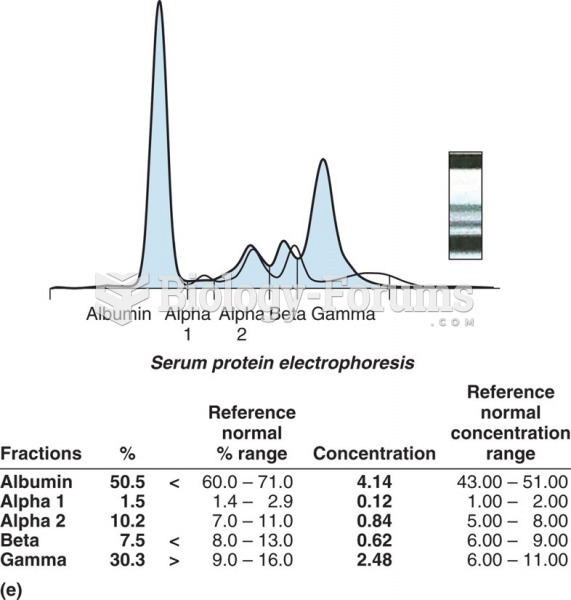|
|
|
Limit intake of red meat and dairy products made with whole milk. Choose skim milk, low-fat or fat-free dairy products. Limit fried food. Use healthy oils when cooking.
The cure for trichomoniasis is easy as long as the patient does not drink alcoholic beverages for 24 hours. Just a single dose of medication is needed to rid the body of the disease. However, without proper precautions, an individual may contract the disease repeatedly. In fact, most people develop trichomoniasis again within three months of their last treatment.
Most childhood vaccines are 90–99% effective in preventing disease. Side effects are rarely serious.
Bisphosphonates were first developed in the nineteenth century. They were first investigated for use in disorders of bone metabolism in the 1960s. They are now used clinically for the treatment of osteoporosis, Paget's disease, bone metastasis, multiple myeloma, and other conditions that feature bone fragility.
The types of cancer that alpha interferons are used to treat include hairy cell leukemia, melanoma, follicular non-Hodgkin's lymphoma, and AIDS-related Kaposi's sarcoma.
 Estimating the molecular weight of a protein. The electrophoretic mobility of a protein on an SDS po
Estimating the molecular weight of a protein. The electrophoretic mobility of a protein on an SDS po
 Electrophoresis gel in a densitometer. SPE densitometry showing an M spike in the gamma region with ...
Electrophoresis gel in a densitometer. SPE densitometry showing an M spike in the gamma region with ...





